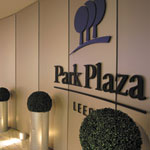Managing data to maximise revenue
Maximising revenue is about charging the right price at the right time. And that means predicting who might arrive when, and how much they are willing to spend. Ross Bentley examines the revenue management systems that can decipher the data
Talk to suppliers of revenue management systems and the conversation soon turns to the importance of data. Only with this information can an operator establish the best available room rates and determine how much to charge different types of guests for different types of rooms at various times.
According to Bill Kotrba, vice-president for industry strategy at JDA software, today's systems are capable of assimilating a host of information to support this decision process. It is possible to interrogate details of what competing hotels are charging and historical data about prices and occupancy and combine this with information on forthcoming events and attractions that may have a bearing on rates. And increasingly, he says, the trend is towards understanding the habits of different customer types in order to maximise revenues in a hotel.
"There's a growing focus on what is known as total revenue management, which is about not just optimising room rates but looking at ancillary revenue streams, such as food and beverage, spa and golf and even the gift shop," Kotrba says.
This is achieved by segmenting customers into different types and predicting the amount of revenue guests are likely to generate during their stay based on data about spending history.
"Hotels will have to learn to not treat all demand equally because certain types of guests will spend more," Kotrba adds. For instance, some hotels will offer attractive room rates and even complimentary rooms to guests expected to spend significant amounts during their stay.
In the age of the internet, the immediacy of this data is also paramount, according to Paul Finch, hotel business unit director at hospitality technology giant Micro Fidelio, who says each new booking will have a bearing on the rate charged for the next. For that reason, he says, the company's revenue management software has been embedded in its property management system, so data is fed through in real-time for "better revenue optimisation".
But according to Cheryl Hawksworth, sales director at revenue systems provider IDeaS, in properties where different systems are running there is a lack of integration between the platforms. "In most cases, anywhere near full integration of data is still an aspiration for hotels," she says.
Hawksworth says making good revenue management decisions is not just about how much data a business has but about the quality of that data and how it is used. She says two issues for today's hoteliers are price elasticity - how much you can increase the revenue per available room (revpar) and still keep the guest - and understanding profitability.
Hawksworth adds: "Knowing how much you are charging for a room is one thing but understanding how much profit you're making from that room is another. If a hotelier is charging more for one room compared with another but selling it through a channel where there is a high commission charge, then he needs to understand that."
Channel management is the specialist area of Ryan Haynes, vice-president for marketing at RateTiger. He says that while integration is desirable, for the majority of hoteliers, especially at smaller properties and independents, the key issues around revenue management are to do with occupancy rates and sales distribution channels.
Haynes adds: "Ideally a hotelier wants to sell as many of their rooms as far out as possible before going to the channel and online travel agents (OTAs) to help with selling any available rooms in the last two to three weeks. If there are only a few rooms left in the days running up, a hotelier can afford to increase the rate to maximise profit."
According to Haynes, prior to the current economic difficulties, hoteliers were doing fine distributing their rooms through a fixed set of OTAs (such as Expedia, Lastminute.com, Bookings.com). But as the economy has worsened, hoteliers have got stuck in these channels looking for volume sales where OTAs charge high commissions of 15% to 20%, and sometimes up to 30%.
If hoteliers are to regain control of their revpar, they need to direct more sales to their own websites but also get the right channel exposure and be able to understand that exposure. Haynes says: "Hoteliers should really be looking to spread their available room stock across a wider selection of channels.
"As well as the large volume booking OTAs, they should be looking at sites that allow them to offer more attractive packages, like room with breakfast, such as Mr&Mrs Smith, Laterooms and City Break. Hoteliers should also look to global distribution systems more, as well as developing their corporate contracts and placing availability on golf or spa-specific sites."
Connecting with so many channels is where the technology comes in. Some hoteliers now use channel manager technology such as that offered by RateTiger rather than manually updating each individual channel with current rates.
Haynes says to optimise the use of all these different channels, hoteliers need to be managing these sites up to two and three times a day, checking availability, and how sales are going on different channels.
He adds: "Because the sales landscape is so complex these days technology is required to manage it. This complexity has also spawned the arrival of specialist revenue managers who can manage the technology, and oversee and alter the channel mix on a regular basis.
"But many properties don't have dedicated revenue managers. Most have general managers and admin staff who carry out this work alongside all their other responsibilities."
THE RITZ ANALYSES ITS RATES
Using the Rate Optimization Service (ROS) from revenue management technology firm IDeaS, demand patterns and price sensitivity within the hotel's historical revenue data were analysed by business segment, room type and demand period. IDeaS then recommended a new best available rate structure in order to increase overall revenue by focusing on the rate ranges with the strongest demand. Predictive modelling of the optimised rates was then carried out based on price sensitivity of demand and capacity distribution. This generated an estimated revenue impact of deploying the new rate structure.
"The results from the ROS analysis supported our strategies and revealed new insights into price sensitivity of our room types," says marketing and development assistant manager Ruth Jones.
Sarova broadens its channel
The group, which has four UK properties including the Rembrandt in Knightsbridge, uses the RateTiger channel management system to manage the majority of the sales channels in a single application rather than manually through each extranet.
According to the group's revenue chief, Jon Siberry, this has saved valuable time processing updates, enabled changes to be made more frequently and reliably and allowed the business to set a base level price for each room type across the different channels.
He adds: "A few years ago it was often difficult to manage rates and availability in real time because the industry wasn't working together. Once technology companies entered a dialogue with OTAs, in particular, the update process became much quicker and smoother - making it much easier for hotels."
Carlson moves to understand its revenues
Working with JDA Software, the group, which has more than 1,000 hotels worldwide including a number in the UK, embarked on a new revenue optimisation project aimed at giving hoteliers the ability to quantify price elasticity and use that output to generate optimal price. Competitor data was brought into Carlson's revenue management system, which is now also able to forecast how customers will respond to price changes.
"JDA's innovation in price optimisation helps insulate individual hotel properties from the effects of irrational competitor pricing, allowing them to price to demand during low- and high-occupancy periods," says the group's vice-president of global revenue optimisation, Frederic Deschamps.
Revenue management technology
JDA tees up RM for golf JDA is trialling its revenue management software with Accordia Golf, a company that manages about 100 golf clubs across Japan. The aim is to optimise revenue across each course, charging different prices for different tee times based on data about historical fees and demand. The technology firm believe this approach is relevant to hotels which have a golf course attached to their properties.
Evaluating contracts Revenue management software supplier EasyRMS has launched a new module designed to enable hoteliers to evaluate the revenue generated through contracted business. Called Ez-CONTRACT, it is intended to help hotels evaluate the value of any contract business they have, measuring the total revenue gained versus the revenue displaced from each individual contract.
how to get the most from revenue management
â- Rate parity, rate parity, rate parity - ensure that all channels are in sync. This is imperative because today's guest will find the cheapest rate.
â- Measure how much each channel really produces and take action. Engage with the channels and learn how you can perform better.
â- Pay more attention to F&B revenue. It's often a large part of the total spend.
â- Use your reporting to analyse exceptional behaviour, understand how to balance the contribution levels of different segments (don't forget F&B) and make sure you react in time.
Provided by Paul Finch, hotel business unit director for Micros Fidelio
Opinion The future of revenue management is customer-centric
While current revenue management technologies tend to focus on generating best available rates based on historical pricing and what competing hotels are charging, I believe the next generation will lean more towards pricing founded on the understanding of the behaviours and preferences of individual guests.
Revenue management systems are becoming more sophisticated as we feed more data into them. This includes historical data from central reservations systems (CRS) and property management systems (PMS), competitor price information, details from web bookings as well as data about retail sites, events and travel attractions. And as systems collect, integrate and analyse this data, the pricing decisions that come from this reflect more accurately the optimal rates a hotel may charge for any given room at any given time.
The natural next step on from this is to input more data about guest behaviours, either as individuals or as types. This will enable systems to understand more about the elements that can be included in packages and at what price to incentivise guests to spend more at a property or to stay extra nights.
One example might be a business guest who books to stay an additional night over the weekend for leisure purposes. Historical data for this type of booking may show a high percentage of guests who fit this profile want a breakfast each morning. Any package pushed to the guest might then include a promotion for breakfast - all in real time.
This is just one small example of where I see revenue management technology heading - becoming more customer-centric and blending the rules of customer relationship management with revenue management.














